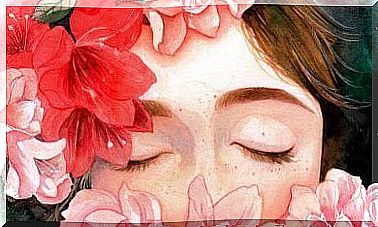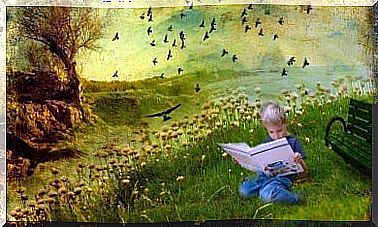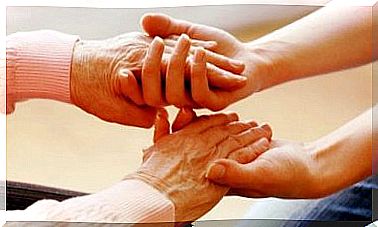Living Without Joy: Normalizing Despair

Living without joy is like existing without feeling the beating of one’s heart, the impulse of enthusiasm, the spring of daily hope. Beyond what we can believe, there are many people who normalize this lack, thus reducing themselves to chronic despondency.
One perceives that something is missing but eventually, many get used to this emptiness, perhaps assuming that there are trains that will never pass again or for which they will not have a ticket.
Joy is a feeling that is not always well understood. We associate it with emotional effusiveness, laughter, movement, connection with our loved ones through pleasant moments. However, it is important to point out that this very human dimension goes much further.
Johnmarshall Reeve, a professor of positive psychology at the University of Melbourne, explains that happiness is synonymous with psychological well-being. We can experience it every day in a simple way, simply by enjoying what we do, what we are and what we have.
Thanks to this sensation, our memory improves, we take care of our cognitive flexibility and even foster creativity and shape more innovative solutions to problems.
So what happens when this dimension is missing? What happens when we no longer feel the tickle of joy? We let go of an essential part of ourselves, the one to which self-esteem, identity and our ability to be happy are linked.
“The best doctors in the world are: Dr. Gioia and Dr. Tranquillità.”
-Jonathan Swift-

Living without joy: a disease that makes no noise
There is an old saying that joy is the main ingredient in the health compound. And it’s really true. A Gallup survey on the emotional state of the world’s population has been published, where countries like the United States and Greece have revealed that more than 50% of the population feels stressed, anxious and with a clear sense of having lost the joy of living.
In addition, a third of the population in these areas say they experience anger and a constant feeling of anger. All of this also affects their health. This level of stress and emotional dissatisfaction often results in cardiovascular disease, a weaker immune system, psychosomatic illness, etc.
Living without joy is not a good prospect for human well-being, yet it seems that this lack of joy is manifesting itself more and more frequently. So what will be the reason for this shocking psychological reality? The Gallup poll suggests that there are several elements contributing to this fact.
Macro dimensions in a joyless society
The term “macro” refers to that larger entity ranging from the social, to the political, to the economic. Whether we like it or not, these macro structures have a direct impact on us and our life. And they do it in different ways:
- By limiting our sense of freedom.
- By vetoing our personal development by hindering access to quality jobs, to better housing, to make us feel fulfilled.
- Generating distrust. Today, people no longer trust their politicians or the economy. Uncertainty seems to permeate everything.
“Micro” dimensions, when you are responsible for your own well-being
Living without joy responds, for the most part, to those “micro” processes for which we are solely responsible.
- We lose the impulse of enthusiasm for life when we don’t have the tools to manage despondency, when we allow stress to take over.
- We let go of our joy when we choose to be still. When you don’t react to what you don’t like. When you don’t have the courage to push for change, when unhappiness, frustration and disappointment arise.
- Joy is extinguished when we live with people who limit our personal growth, where affection is not sincere, where there is no respect and a sense of well-being is not created in sharing life, spaces or common projects.
- Factors such as loneliness, lack of purpose, lack of hope, and low self-esteem also help to mediate this feeling.

What can we stop living joylessly?
Living without joy means just barely surviving, without enthusiasm, motivation or energy. These states can undoubtedly lead us to frustration, where that feeling halfway between anger and sadness that is so difficult to manage arises. Nobody deserves this kind of sad reality.
- Here is a first step to tackle this process. We assume that, in a certain sense, nothing can be done about “macro” conditions. Economy, politics, social events are not always under our control. However, the “micro” dimension belongs to us, we are the owners and masters of those personal micro-universes where we can make small changes that will have an impact on our well-being.
- Joy can be recovered by taking on new goals, changing scenarios and even people. The human being can start over as many times as necessary and in every change, one must get closer to one’s best version, to tune into one’s authentic needs and vital goals.
- Joy does not come with a lottery prize, nor is it subject to material possessions. Joy is above all personal satisfaction, it is the well-being that emerges when we do what we like, when our self-esteem is strong and we continue to maintain a child’s curiosity and capacity for wonder.
Last but not least, we must remember that this feeling grows and expands when we feel supported, loved; when we meet those brilliant people who make living together easy.
We do not hesitate, therefore, to encourage the changes we deem necessary for this essential feeling to pervade our life.









